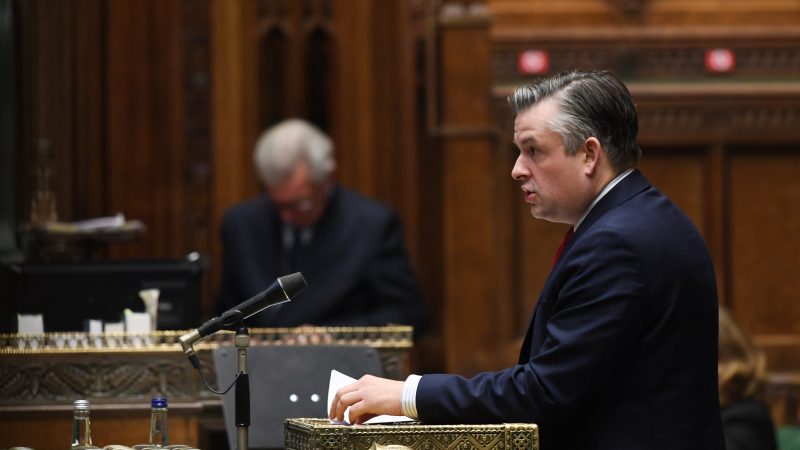
Jonathan Ashworth has said the latest statistics on poverty in the UK are a “devastating verdict” on the Tories’ record in government, with one million more people revealed to be living in poverty than in the previous year.
An estimated 14.4 million people were in relative low income – below 60% of average household income – in 2021/22, according to statistics released today by the Department for Work and Pensions (DWP), up from 13.4 million the previous year.
The data revealed that as many as 4.2 million children were living in poverty, an increase from 3.9 million in 2020/21, and 2.1 million pensioners, up from 1.7 million.
The Shadow Work and Pensions Secretary said: “These figures are a devastating verdict on 13 years of the Tories. The simple truth is, after 13 years of the Tories, hard-working families are worse off while increasing numbers of children and pensioners are in poverty.
“The Tories have left Britain languishing and left families exposed to the cost-of-living crisis. Labour’s mission to secure the highest sustained growth in the G7 will create good, new jobs and raise living standards across every part of the country.”
TUC general secretary Paul Nowak said: “If you work hard, you shouldn’t have to worry about making ends meet. But working poverty has rocketed under Conservative governments since 2010.
“It’s clear why this has happened. The Conservative approach has been to reward wealth instead of work. Pay and social security have been held down year after year, while the rich get tax breaks and bankers get unlimited bonuses.
“We need a different kind of government making different choices. A government with a plan to get pay rising across the economy. A government that rewards work instead of wealth.”
According to analysis of the data by the Joseph Rowntree Foundation (JRF), much of the reduction in poverty seen during the first year of the Covid pandemic has been reversed, with pensioner poverty having already returned to pre-pandemic levels.
The JRF found that in-work poverty has remained “stubbornly high”, with more than half of people in poverty living in a family where at least one adult is in work and more than two-thirds of children.
JRF chief analyst Peter Matejic said the increase in child and pensioner poverty is a “shameful trend that should jolt the government into action”, adding that the figures show the “stark consequences” of the government’s decision to end the £20 a week uplift to Universal Credit.
Matejic said: “Much of the data in today’s statistics covers the period before inflation began to spiral and the cost-of-living crisis started to bite. Poverty was already on the increase as we entered this crisis, and despite the support provided by the government over the last year, the situation has continued to worsen for millions.
“Inflation remains in double digits and rents have rocketed. Benefit levels are so low that people cannot afford to buy food or heat their homes. At the very least the government must ensure that the basic rate of Universal Credit is actually linked to the cost of essentials if it expects to make any meaningful progress on poverty.”
A government spokesman said ministers are “committed to eradicating poverty and supporting those in need, and our actions have helped ensure there are nearly two million fewer people in absolute poverty than there were in 2009/10”.
He added that the latest figures “reflect the country coming out of the pandemic and accompanying rising prices” and highlighted the support provided to households through cost-of-living payments, the household support fund and the energy price guarantee.




More from LabourList
Almost half of Labour members oppose plans to restrict jury trials, poll finds
‘How Labour can finally fix Britain’s 5G problem’
‘The University of the Air – celebrating 60 years of Harold Wilson and Jennie Lee’s vision’